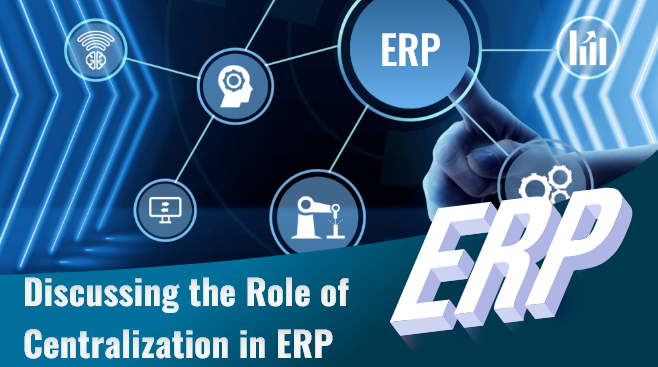Discussing the Role of Centralization in ERP
Decentralization has done wonders for several areas of administration. But at times, the concept of decentralization can get a little too complex as well. This is because decentralization tends to fragment the whole system into several components. When it comes to managing this would make it very difficult. This is exactly what makes ERP so dependable and easy to work with. ERP attempts to build a centralized system that will help the organization to have better control over its functions, resources, clients, business, and so on.
In this article, we will try and attempt to discuss what specific role centralization contributes to making ERP so convenient and reliable. Let us get started.
ERP and Centralization
The success of every organization or company will require equal participation and the efforts of all the departments involved. Be it from the developmental team, the creative department, the marketing team, the sales team, or the HR department. The company can achieve its organizational goals only if all these departments go hand in hand making their valuable contributions towards achieving their collective goal. The key to making this functional, running, and successful is through effective communication.
Being differentiated through the functions they perform, each department will have its distinctions. This will make them appear a little fragmented. Therefore it is extremely important to integrate all of these departments under a single platform. This is to ensure that they effectively communicate throughout the process and they can efficiently share documents, files, and data through a unified meaning. This is why centralizing them is important because, without a unified system, they will still remain divided and fragmented. This is exactly what ERP implementation can contribute.
By resorting to ERP implementation in an organization, one can unify all these departments, people, resources, and clients under one single unified platform. Since all the data they need gets centralized under a single framework, organizations can also ensure that they do not miss the data they are looking for by providing easy access to this data. This will also contribute to increased accountability. ERP implementation comes with several options and employees can also track their process, and avail of analytics and reports without having to depend on a third party. For the organization also, this will help them in effectively monitoring all the functions and developments with regard to time and progress. You get it all under one!
Customized ERP implementation
Every organization or company will have its unique business goals and differentiated working patterns. It is not always necessary that you come across one single centralized and unified ERP implementation that will offer you everything that you are looking for. The world of Epicor is evolving and progressing day by day with more technological features to offer. If you want specific requirements to be fulfilled through a centralized ERP system you can get it done by hiring an efficient group of ERP developers who can understand your unique needs and aspiration. This way you will never have to compromise on your ERP implementation requirements.



